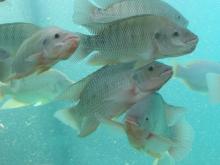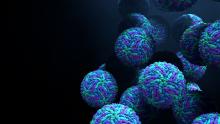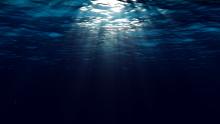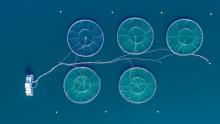News
-

Sunflowers’ invisible colours help them attract bees and adapt to drought
January 18, 2022
It turns out sunflowers are more than just a pretty face: the ultraviolet colours of their flowers not only attract pollinators, but also help the plant regulate water loss, according to new UBC research. The dense collection of yellow petals of a sunflower (technically an ‘inflorescence… read more
-

CRCs appointed at UBC Science in ecology, computer science, and astrophysics
January 12, 2022
UBC Science receives funding for research in ecology, computer science, astrophysics, and microbiology through the appointment of three new Canada Research Chairs and one renewal. This honour is shared with a total of 188 new and renewed Canada Research Chairs across 43 institutions in Canada for… read more
-

Machine learning and AI used to rapidly detect sepsis, cutting risk of death dramatically
January 10, 2022
A groundbreaking advance in quickly detecting sepsis using machine learning has been pioneered by researchers in the Hancock Lab and the department of microbiology and immunology at UBC. Sepsis is one of the biggest killers in the world, responsible for one in five deaths worldwide including… read more
-

Data confirm link between respiratory stress and fish reproduction
January 10, 2022
A consistent metabolic ratio found across 133 Chinese marine and freshwater fish species provides new evidence in support of the idea that fish become sexually active – and spawn for the first time – in response to growth-induced respiratory stress. Using the maximum size, and… read more
-

B.C. sea sponge has COVID-blocking powers
January 9, 2022
UBC researchers have identified three compounds that prevent COVID-19 infection in human cells, derived from natural sources including a B.C. sea sponge. The discovery paves the way for the development of new medicines for COVID-19 variants made from natural sources. And given nature’s… read more
-

UBC Science appoints new Associate Deans Students, Academic
January 5, 2022
The Faculty of Science is pleased to announce two senior leadership transitions: Dr. James Charbonneau as our new Associate Dean Students, and Dr. Jaclyn Stewart as our new Associate Dean Academic, with their new roles effective January 1, 2022. They will replace Dr. Ian Cavers and Dr. Sara… read more
-

New research shows gene exchange between viruses and hosts drives evolution
January 4, 2022
The first comprehensive analysis of viral horizontal gene transfer (HGT) illustrates the extent to which viruses pick up genes from their hosts to hone their infection process, while at the same time hosts also co-opt useful viral genes. HGT is the movement of genetic material between disparate… read more
-

Virus hunter, physicist among UBC researchers invested into Order of Canada
December 30, 2021
UBC researchers Dr. Curtis Suttle and Dr. Walter Hardy are among the members of the UBC community being invested into the Order of Canada this week. The Order is one of our country’s highest civilian honours. Dr. Suttle, one of the world’s leading marine virologists, currently has… read more
-

Ancient marine deoxygenation events highlight the fragility of our oceans’ biochemical cycles
December 20, 2021
Researchers at UBC have uncovered links between rapid changes in ocean chemical conditions, climatic catastrophe, and biological crisis in Earth’s past. Scientists discovered this phenomenon while studying an ocean deoxygenation event (OAE1a) in the Cretaceous Period (~120 Ma)—an… read more
-

Farmed seafood supply at risk if we don’t act on climate change
December 13, 2021
The supply of farmed seafood such as salmon and mussels are projected to drop 16 per cent globally by 2090 if no action is taken to mitigate climate change, according to a new UBC study. Ocean-farmed seafood or mariculture is often seen as a panacea to the problems of depleted stocks of wild fish… read more